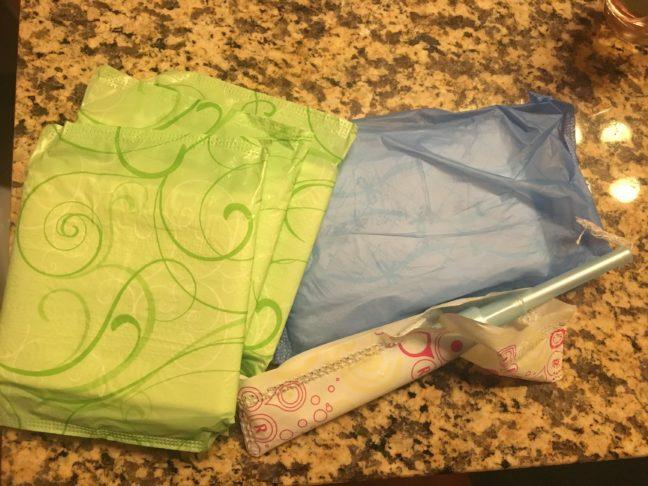Last May, the Associated Students of Madison worked with Facilities Planning and Management to pilot a program providing free menstrual products on first-floor bathrooms of University of Wisconsin buildings.
Now, pending a cost quote from FPM, the program will leave its pilot stages and expand to other buildings on campus. Jacqueline Beaulieu, Shared Governance Campaign director, said in an email to The Badger Herald the program will expand to two to four buildings a year for the upcoming years.
“How many buildings FMP expands the pilot to each year depends on how many bathrooms there are on the ground floor, and whether there are machines that can be easily converted to be free,” Beaulieu said.
The dispensers in women, men and gender neutral bathrooms in Helen C. White, the Red Gym and Sterling Hall were the first bathrooms to receive free dispensers last May. Kendall Oehler, the co-president of the Accessible Reproductive Healthcare Initiative, said menstrual products will be made accessible in HSLC, Engineering Hall, and the Education Building during the next expansion, pending a quote.
Oehler believes an unmet need, due to the taxation of menstrual products as a luxury item in Wisconsin, and the normalization of providing such products for free will lead to it becoming commonplace. Allowing for people in schools, institutions or detention facilities to stop overpaying for essential items.
“We are hoping that in the meantime, before every building has machines installed to provide menstrual products supplied by the university, student organizations and activists can develop a grassroots network to guerrilla-supply bathroom stalls will menstrual products, to fill the gap,” Oehler said.
Guerrilla supplying the bathrooms would mean student activists and groups would provide products in the bathrooms on their own time and money in order to meet the needs of students.
The program will be sticking to providing pads and tampons in all dispensers even though ARHI has collected menstrual cups, a silicone cup that is inserted somewhat like a tampon, in the past for their Bleeding Love donation drive. A program involving the distribution of such a product is still an idea in its working stages, Oehler said.
New student org seeks to make menstrual products accessible to those in need
Oehler hopes to create a program similar to Sex Out Loud “condom conduits,” where ARHI would provide tips and information on menstrual cups to students, possibly calling it “cup conduits.” In the meantime, improving access to menstrual products is the main goal for Oehler.
“Improved accessibility to menstrual products on campus means heightened equality, not only in terms of those who need to purchase the products and those who don’t but also with respect to overall money spent,” Oehler said.
Beaulieu said FPM will continue to stock the dispensers in the pilot buildings and will expand focusing on high occupancy academic and classroom buildings first, then moving on to all FPM and other buildings on campus.
Even though UW is not the first to offer such a program, the program takes a large step forward for closing the access gap for such products Oehler said. She hopes the election and institution of representatives will work to repeal the luxury tax on menstrual products and other essential goods that impact low-income communities in Wisconsin.
“FPM will also add the free menstrual products dispensers to their ‘best practices list’ for new contractors to encourage new buildings to automatically install them,” Oehler said.
______
Correction: A previous version of this article stated AHRI stood for Access to Reproductive Healthcare Initiative, it has since been corrected to Accessible Reproductive Healthcare Initiative. A previous version also state Kendall Oehler was vice president. It has since been corrected to co-president. The Badger Herald regrets these errors.
















